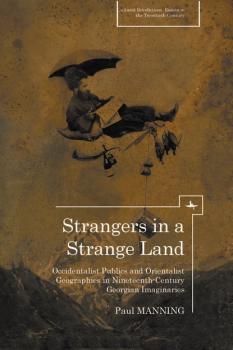Cultural Revolutions: Russia in the Twentieth Century
Скачать книги из серии Cultural Revolutions: Russia in the Twentieth CenturyOverwriting Chaos
The first study in English of Solzhenitsyn’s entire corpus of prose Addressed to an academic audience as well as the general reader Solzhenitsyn’s portraits of Lenin and Stalin as twin monsters of an utterly modern kind The Russian revolution as a catastrophic turning point in world history that was both terrifying and farcical Solzhenitsyn’s erotic codes His polemical relationship with Western culture, from Plato and Nietzsche to modernism and rock music
The Translator's Doubts
Using Vladimir Nabokov as its “case study,” this volume approaches translation as a crucial avenue into literary history and theory, philosophy and interpretation. The book attempts to bring together issues in translation and the shift in Nabokov studies from its earlier emphasis on the “metaliterary” to the more recent “metaphysical” approach. Addressing specific texts (both literary and cinematic), the book investigates Nabokov’s deeply ambivalent relationship to translation as a hermeneutic oscillation on his part between the relative stability of meaning, which expresses itself philosophically as a faith in the beyond, and deep metaphysical uncertainty. While Nabokov’s practice of translation changes profoundly over the course of his career, his adherence to the Romantic notion of a “true” but ultimately elusive metaphysical language remained paradoxically constant.
Strangers in a Strange Land
Manning examines the formation of nineteenth-century intelligentsia print publics in the former Soviet republic of Georgia both anthropologically and historically. At once somehow part of “Europe,” at least aspirationally, and yet rarely recognized by others as such, Georgia attempted to forge European style publics as a strong claim to European identity. These attempts also produced a crisis of self-defi nition, as European Georgia sent newspaper correspondents into newly reconquered Oriental Georgia, only to discover that the people of these lands were strangers. In this encounter, the community of “strangers” of European Georgian publics proved unable to assimilate the people of the “strange land” of Oriental Georgia. This crisis produced both notions of Georgian public life and European identity which this book explores.
Landmarks Revisited
The Vekhi (Landmarks) symposium (1909) is one of the most famous publications in Russian intellectual and political history. Its fame rests on the critique it offers of the phenomenon of the Russian intelligentsia in the period of crisis that led to the 1917 Russian Revolution. It was published as a polemical response to the revolution of 1905, the failed outcome of which was deemed by all the Vekhi contributors to exemplify and illuminate fatal philosophical, political, and psychological flaws in the revolutionary intelligentsia that had sought it. Landmarks Revisited offers a new and comprehensive assessment of the symposium and its legacy from a variety of disciplinary perspectives by leading scholars in their fields. It will be of compelling interest to all students of Russian history, politics, and culture, and the impact of these on the wider world.
Chapaev and his Comrades
Across the twentieth century, the Russian literary hero remained central to Russian fiction and frequently “battled” one enemy or another, whether on the battlefield or on a civilian front. War was the experience of the Russian people, and it became a dominant trope to represent the Soviet experience in literature as well as other areas of cultural life. This book traces those war experiences, memories, tropes, and metaphors in the literature of the Soviet and post-Soviet period, examining the work of Dmitry Furmanov, Fyodor Gladkov, Alexander Tvardovsky, Emmanuil Kazakevich, Vera Panova, Viktor Nekrasov, Alexander Solzhenitsyn, Vladimir Voinovich, Sergei Dovlatov, Vladimir Makanin, Viktor Astafiev, Viktor Pelevin, and Vasily Aksyonov. These authors represented official Soviet literature and underground or dissident literature; they fell into and out of favor, were exiled and returned to Russia, died at home and abroad. Most importantly, they were all touched by war, and they reacted to the state of war in their literary works.









